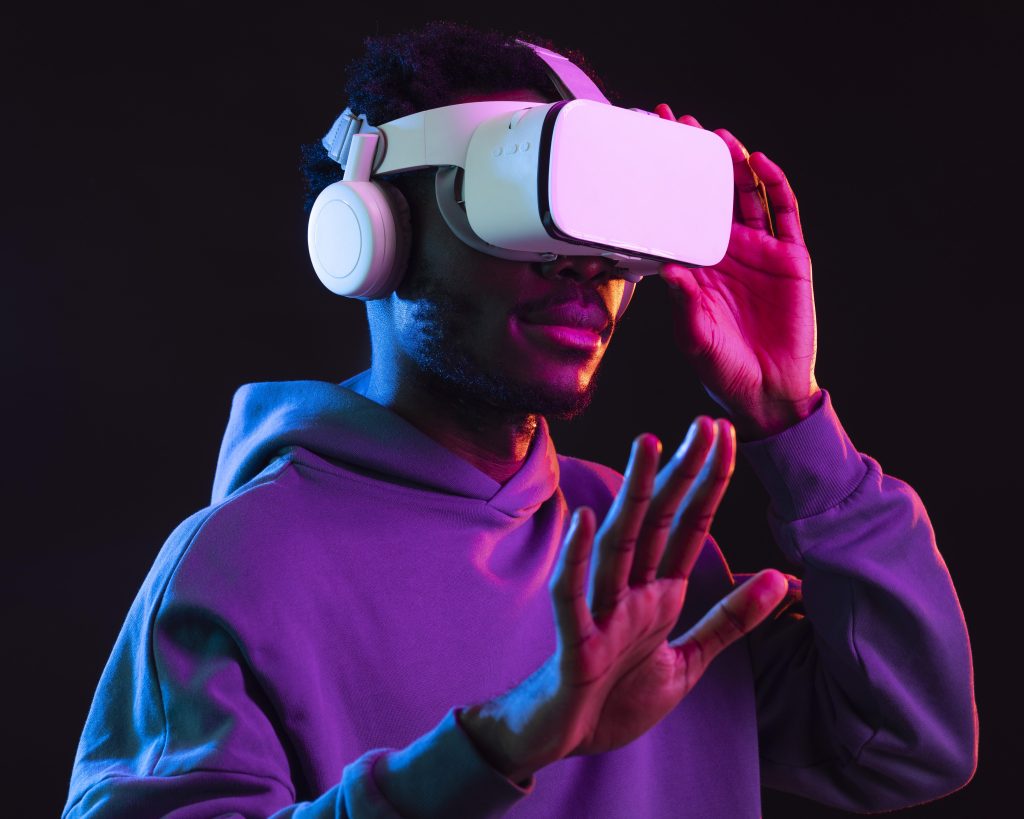
Las Vegas, known for its unyielding innovation in the realm of entertainment, is once again paving the way for groundbreaking experiences. This time, it’s through the lens (quite literally) of Virtual Reality (VR). From the buzzing casino floors to show-stopping performances, VR is reshaping the quintessential Vegas experience, offering visitors new dimensions of fun and immersion. Let’s delve into how VR is revolutionizing the entertainment business in Sin City.
Casino Gaming 2.0 Traditional card games and slot machines are getting a digital facelift with the integration of VR. Step into a virtual casino, and you’re transported to a world where gaming comes alive in 3D. Players can interact with digital dealers, sit at poker tables with avatars of real players from around the globe, or explore themed slot game worlds, making the stakes and thrills even more compelling.
Immersive Concerts and Performances Imagine standing centimeters away from your favorite artist in a packed arena, feeling the vibrancy of the performance, all from the comfort of your living room. Thanks to VR, this is becoming a reality. Some artists are partnering with VR companies to offer virtual tickets to their shows, providing fans an intimate, front-row experience, regardless of their physical location.
Interactive Show Experiences Vegas shows, known for their flamboyance and theatricality, are being elevated through VR. Attendees can now be a part of the narrative, making choices that influence the direction of the show or even interacting with performers in real-time. This level of immersion is not just transforming audience engagement but is also adding a new revenue stream for producers.
Virtual Tours and Adventures Beyond the casino and stage, Vegas is leveraging VR for virtual tours and adventures. Tourists can explore the city’s history, its iconic landmarks, or even embark on a virtual helicopter ride over the Strip, all through VR headsets, making sightseeing a 24/7 possibility.
Business Impacts and Future Potential The adoption of VR in entertainment is doing more than just enhancing experiences; it’s broadening revenue models for businesses. With virtual ticketing, artists and venues can reach larger audiences. Casinos can cater to global clientele without them stepping into Nevada. Moreover, the data gathered from VR usage is a goldmine for marketers, providing insights into user preferences, behaviors, and spending habits.
In conclusion, as VR technology continues to evolve, its applications in entertainment are bound to expand, making the Vegas experience even more exhilarating. The city, with its history of embracing the new and novel, stands poised to be at the forefront of this digital entertainment frontier, ensuring that what happens in Vegas doesn’t just stay in Vegas, it’s broadcasted in virtual dimensions across the globe.